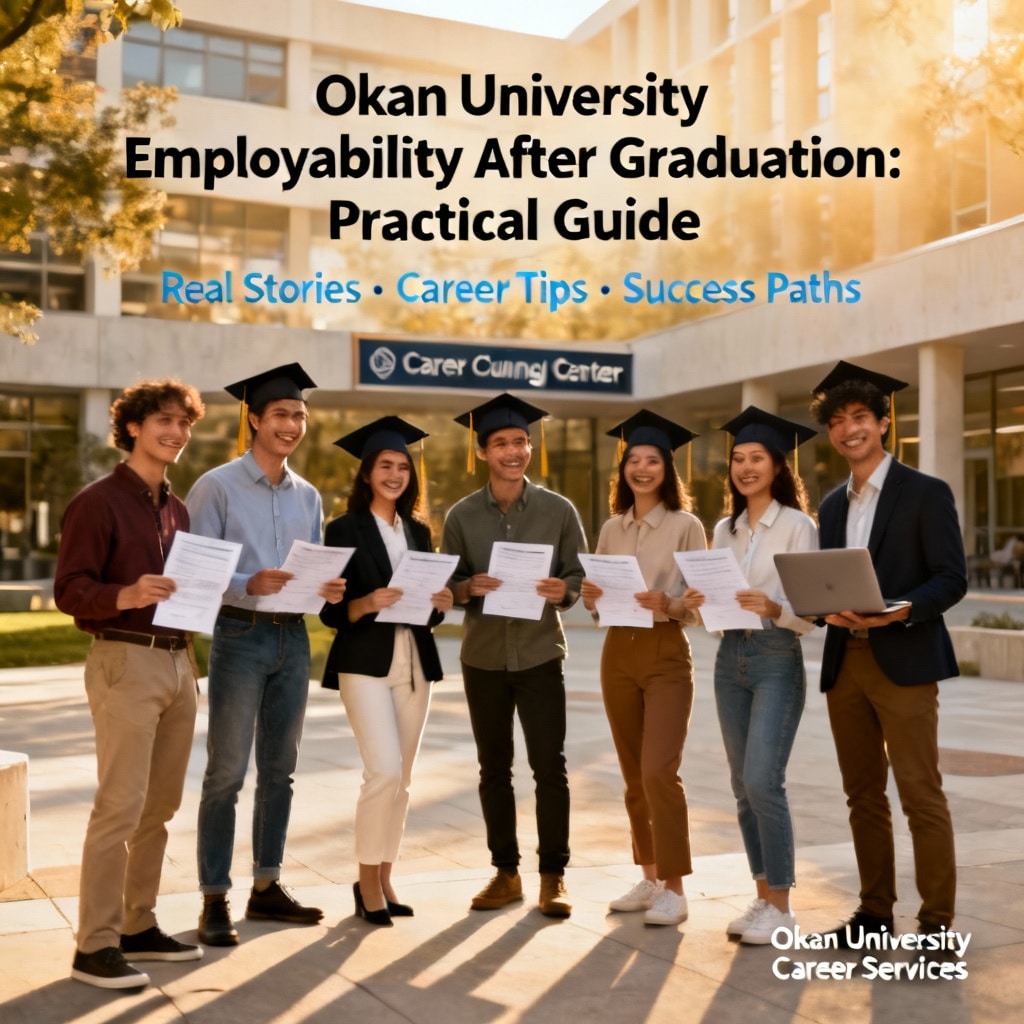Okan University Employability After Graduation — A Practical Guide for Recruiters, Admissions Teams and Partners
Okan University Employability After Graduation — How to Evaluate and Benchmark When Direct Data Are Unavailable
Okan University employability after graduation is a question many international recruiters, university admissions teams, HR professionals and placement agencies ask when evaluating candidates and institutional partnerships in Turkiye…
Quick Transparency Check — The First Things to Request
- Graduate destination report (6‑month and 12‑month employment rates).
- Top employer list by sector and number of graduates employed.
- Average starting salary ranges by faculty/program.
- Internship placement numbers and types (paid/unpaid, industry partners).
- Career services structure: staff numbers, student-to‑advisor ratios, events per year.
- Employer engagement records: advisory boards, memoranda of understanding (MOUs), recruitment days.
- Accreditation and professional licensing pass rates for regulated programs (health, engineering, law).
- Alumni engagement metrics: active alumni network size, mentorship programs, LinkedIn alumni distribution.
Use Alternative Data Sources When Direct Metrics Are Not Published
- LinkedIn alumni analysis: sample recent cohorts to map industries, job titles and geographies.
- Employer surveys: contact employers listed in public job adverts to confirm recruitment of graduates.
- Student testimonials and independent reviews (focus groups with current students and recent graduates).
- Collaboration records: verify MOUs and industry partnerships mentioned on the university website or press releases.
- Program accreditation pages and professional board results where applicable.
What Employability Indicators Matter Most for International Recruiters and HR Teams
Core Quantitative KPIs
- Employment rate at 6 and 12 months after graduation.
- Percentage in full‑time, graduate‑level employment vs. part‑time or unrelated jobs.
- Internship conversion rate: percentage of students who complete internships and then receive job offers.
- Professional licensing or board pass rates for regulated fields.
Core Qualitative KPIs
- Employer satisfaction: feedback from top hiring partners and internship hosts.
- Strength of alumni network and industry mentorship schemes.
- Soft‑skills development: career readiness programs, communication, teamwork and digital literacy curricula.
- Language and international readiness: English‑taught programs, CEFR outcomes, and international exchange participation.
Practical Benchmarking: Compare Models and Best Practices from Other Universities
To benchmark Okan University’s employability strategy, review model pages and career service approaches from other institutions listed on Study in Turkiye:
- Medipol University – Career services and industry engagement models
- Uskudar University – Digital health, psychology and neuroscience program linkages
- Ozyegin University – Entrepreneurship co‑ops and business incubation models
- Bilgi University – Employer partnerships and international program design
- Istinye University – Integrated clinical and allied health employability mechanisms
How Admissions Teams and Recruiters Can Turn Limited Data Into Action
Stage 1 — Due Diligence and Evidence Gathering (4–6 weeks)
- Send a formal request for the baseline documents listed earlier.
- Conduct a targeted LinkedIn alumni mapping exercise of the last 3 graduating cohorts.
- Ask for a sample employer contact list and request permission to survey 5–10 major employers.
- Review program curricula for employability elements (work placements, capstones, professional certification).
Stage 2 — Pilot Recruitment Partnership (3–9 months)
- Agree on a pilot: a small, measurable recruitment cohort (e.g., 20–50 students) with defined KPIs (placement rate, time to hire).
- Define roles: which organization manages internships, who provides soft‑skills training, and how candidate progress is tracked.
- Use transparent reporting templates: weekly placement dashboards, candidate skills matrices and employer feedback forms.
Stage 3 — Scale and Automate
- If pilot KPIs meet thresholds, scale to formal partnerships with SLAs and placement fees or revenue‑share models.
- Automate candidate sourcing, interview scheduling and progress tracking.
How Study in Turkiye Can Support Your Okan University Employability Assessment and Partnerships
Study in Turkiye combines international recruitment expertise, admissions automation, and partner management…
What We Offer:
- Partnership facilitation: introductions and formal outreach templates to university career services and faculties.
- Due diligence and benchmarking: structured alumni mapping and employer validation services.
- Agent and admissions support: we help agents and admissions teams streamline documentation and intake processes.
Take the Next Step with Study in Turkiye
Ready to validate Okan University employability outcomes or design a pilot recruitment partnership? Contact Study in Turkiye’s partnerships team to schedule a review, request a partnership proposal, or get help automating recruitment workflows.

